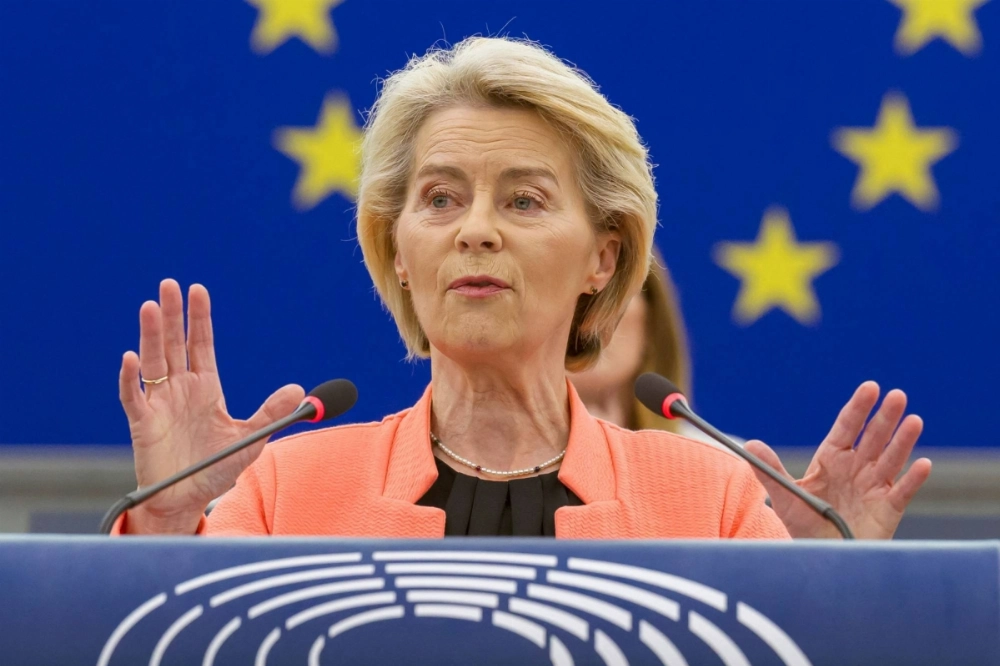On Thursday, the European Parliament will vote on whether to dismiss Commission President Ursula von der Leyen and her entire team. This motion of censure — the European Union’s equivalent of a no-confidence vote — is highly unusual. While such motions have never succeeded, they represent the bloc’s most powerful check on executive authority and have historically reshaped the political dynamics in Brussels.
The stakes could not be higher. As Europe negotiates a potential trade deal with U.S. President Donald Trump’s administration and struggles to maintain its influence in the on-again, off-again Ukraine-Russia peace talks, the vote’s outcome could determine the EU’s strategic direction. It may finally compel von der Leyen to make a defining choice: Govern from the political center or continue what some Europeans see as a drift toward the nationalist right. Von der Leyen’s choice could have profound implications for the bloc’s global relevance and credibility.
The censure motion, prompted by a recent court ruling criticizing von der Leyen’s refusal to disclose the text messages she exchanged with Pfizer CEO Albert Bourla during the COVID-19 vaccine negotiations, was initiated by right-wing and far-right groups. It also reflects broader concerns about her alleged bypassing of the EU Parliament and centralization of power within the Commission.


















With your current subscription plan you can comment on stories. However, before writing your first comment, please create a display name in the Profile section of your subscriber account page.